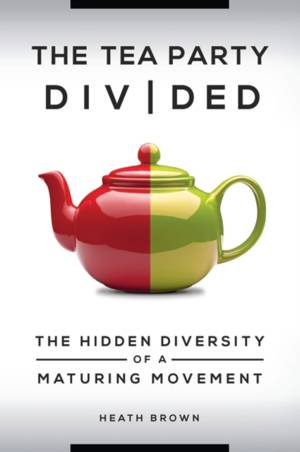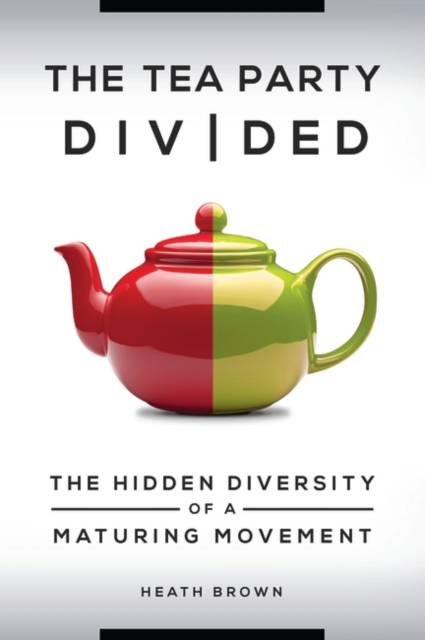
Bedankt voor het vertrouwen het afgelopen jaar! Om jou te bedanken bieden we GRATIS verzending aan op alles gedurende de hele maand januari.
- Afhalen na 1 uur in een winkel met voorraad
- Gratis thuislevering in België
- Ruim aanbod met 7 miljoen producten
Bedankt voor het vertrouwen het afgelopen jaar! Om jou te bedanken bieden we GRATIS verzending aan op alles gedurende de hele maand januari.
- Afhalen na 1 uur in een winkel met voorraad
- Gratis thuislevering in België
- Ruim aanbod met 7 miljoen producten
Zoeken
€ 93,45
+ 186 punten
Omschrijving
Unlike previous books on the Tea Party, this work looks at the second phase of party growth to show that what was once considered a monolithic movement is truly a collection of different opinions.
Since the Tea Party exploded onto the American political scene, it has matured and changed, but the differences that now exist within the movement are largely unacknowledged. A more nuanced understanding is called for. Previous treatises have sought explanations for the rise of the movement and focused primarily on its early days. This book, in contrast, focuses on understanding the diversity within the party, challenging the notion that the Tea Party is a homogeneous political movement defined mainly by its ultra-conservatism, regionalism, and rigid political orthodoxy. To accurately depict the Tea Party as it exists today, the book explores how the party evolved from its first phase to its second, examining important distinctions in terms of who has joined and who has served in Congress and other offices. Differences in Tea Party organizations around the country are examined and their funding sources considered. The book also explores the political positions taken by Tea Party members, looking at the voting records of party legislators to see if they've adhered to stated movement objectives. Finally, and perhaps most intriguingly, the author speculates on what this all means and suggests possible futures for the diverse Tea Party strands.Specificaties
Betrokkenen
- Auteur(s):
- Uitgeverij:
Inhoud
- Aantal bladzijden:
- 176
- Taal:
- Engels
Eigenschappen
- Productcode (EAN):
- 9781440836442
- Verschijningsdatum:
- 18/08/2015
- Uitvoering:
- Hardcover
- Formaat:
- Genaaid
- Afmetingen:
- 152 mm x 236 mm
- Gewicht:
- 453 g

Alleen bij Standaard Boekhandel
+ 186 punten op je klantenkaart van Standaard Boekhandel
Beoordelingen
We publiceren alleen reviews die voldoen aan de voorwaarden voor reviews. Bekijk onze voorwaarden voor reviews.












